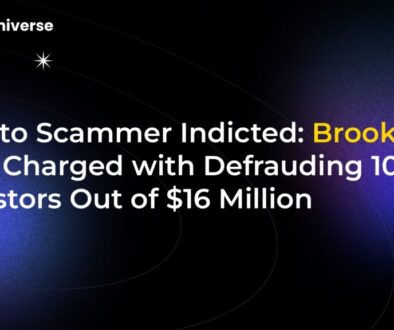Identifying and Avoiding Fake Crypto Investment Platforms

Identifying and Avoiding Fake Crypto Investment Platforms
The decentralized nature of the cryptocurrency market, while offering immense opportunities, also makes it a prime target for scammers. Fake cryptocurrency investment platforms are unfortunately common, employing deceptive tactics like fake reviews, incorrect contact information, and unrealistic promises to lure unsuspecting investors. To protect your hard-earned assets, it’s crucial to approach these platforms with a healthy dose of skepticism and learn to recognize the tell-tale red flags. Before you invest a single penny, empower yourself with the knowledge to identify common scam signs and verify the legitimacy of any crypto platform.
Identifying Red Flags of Fake Crypto Platforms
Fake crypto investment platforms often display several red flags that, once recognized, can save you from significant financial loss. Be on the lookout for these warning signs:
- Unrealistic Promises of Returns: This is perhaps the biggest and most common red flag. If a platform promises guaranteed profits, incredibly high returns (e.g., "Make 1 Bitcoin in just a few days!"), or quick riches with no risk, it’s almost certainly a scam. Legitimate investments, especially in volatile markets like crypto, always carry risk, and no reputable platform can guarantee returns.
- Lack of Transparency and Contact Information: A legitimate platform will have clear, verifiable contact details—phone numbers, email addresses, and sometimes even physical addresses. If a website lacks basic contact info, or provides only a generic contact form without a direct line of communication, be extremely wary. Scammers often hide behind anonymity.
- Pushy Sales Tactics and Unsolicited Contact: Be suspicious of anyone or any platform that uses high-pressure sales tactics, rushes you into making a decision, or contacts you unsolicited through direct messages on social media or messaging apps. Legitimate opportunities rarely require immediate, uninformed action.
- Fake Team Pages and Endorsements: Many fake platforms create elaborate "About Us" sections with photos and bios of a supposed team. Often, these are stolen images or fabricated profiles. Always cross-reference team members on professional networking sites like LinkedIn. Similarly, watch out for fake endorsements from celebrities or financial experts that seem too good to be true.
- Plagiarized Whitepapers and Generic Content: A legitimate crypto project will have a unique, detailed whitepaper outlining its technology, roadmap, and tokenomics. Scammers often plagiarize existing whitepapers or provide vague, generic content that lacks substance.
- Missing Regulatory Approval: While the crypto regulatory landscape is evolving, reputable platforms often seek appropriate licenses or registrations in the jurisdictions they operate. A complete absence of any mention of regulatory compliance should raise a flag.
- Fake Reviews and Social Media Activity: Be cautious of platforms with an overwhelming number of generic, overly positive reviews that seem templated or are posted by new accounts. Scammers often buy fake reviews or create artificial social media buzz.
- Fake Airdrops and Giveaways: Some scams entice users with promises of free tokens or lucrative airdrops that require you to send a small amount of crypto first to "verify" your wallet or cover a "fee." This is a common trick to steal your funds.
Verifying Platform Legitimacy
Once you’ve identified potential red flags, the next crucial step is to actively verify the platform’s legitimacy. Adopt a skeptical mindset from the outset and follow these steps:
- Scrutinize Contact Information: Don’t just look for contact details; try to use them. Send an email, call the number, or check the physical address online (e.g., Google Maps, street view). See if the responses are professional and timely.
- Verify Team Information: As mentioned, cross-reference team members on LinkedIn and other professional sites. Look for consistency in their professional history and verify if they are genuinely associated with the project. Legitimate platforms will have real products and verifiable team information.
- Research User Reviews and Community Feedback: Look for reviews on independent, reputable forums, review sites (but be wary of fake reviews there too), and crypto communities (Reddit, Telegram, Discord). Pay attention to a balance of opinions and look for detailed, specific feedback, both positive and negative. Be wary if all reviews are overwhelmingly positive and generic.
- Check for Regulatory Compliance and Licenses: Investigate if the platform is registered or licensed with relevant financial authorities in its operating regions. This information should be easily accessible on their website.
- Analyze the Whitepaper and Project Documentation: A legitimate project will have a comprehensive, well-written whitepaper that clearly explains its technology, use case, team, and financial model. Look for originality, technical depth, and a realistic roadmap.
- Examine Security Measures: Reputable platforms will highlight their security protocols, such as two-factor authentication (2FA), cold storage for assets, and encryption. While this doesn’t guarantee safety, a lack of clear security information is a concern.
- Look for Real Products or Services: Does the platform actually offer a tangible product, service, or technology? Or is it just a promise of high returns? Legitimate platforms have a clear value proposition beyond just investment returns.
- Avoid Hasty Decisions: Scammers thrive on urgency. Take your time. Don’t let anyone pressure you into investing. If an offer is only good for a short window, it’s often a tactic to bypass your critical thinking and force a quick, uninformed decision.
Conclusion
The cryptocurrency space offers exciting investment opportunities, but it’s also a breeding ground for scams. By understanding the common red flags and diligently verifying the legitimacy of any platform, you can significantly reduce your risk of falling victim to fraud. Always remember: if an offer sounds too good to be true, it almost certainly is. Prioritize thorough research, independent verification, and a healthy dose of skepticism before committing your funds. Your financial security in the crypto world depends on your vigilance.


